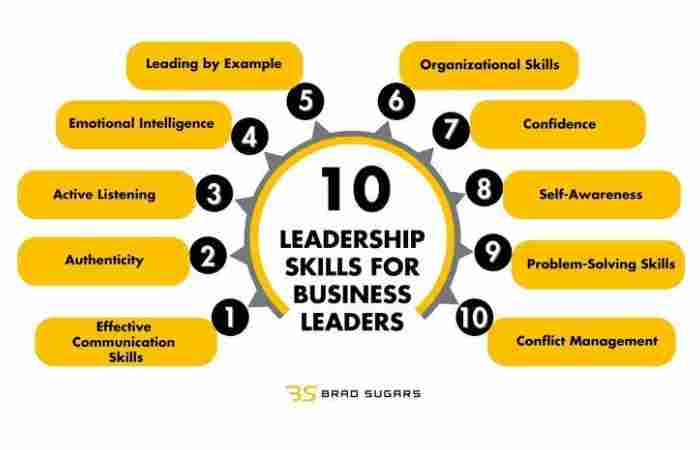Why is it Vital for Business Leaders to Have Strong People Skills

In today’s fast-changing business world, leadership isn’t just about strategy, profits, or performance metrics. It’s about people. The ability to connect, inspire, and communicate effectively with others can make or break a leader’s success. That’s why having strong people skills is absolutely vital for business leaders who want to build trust, motivate teams, and drive long-term growth.
Let’s dive into why these skills matter so much — and how mastering them can transform your leadership style and your organization.
What Are People Skills?
Before understanding why they’re essential, let’s clarify what people skills really mean.
Definition of People Skills
People skills (also known as interpersonal or soft skills) are the abilities that help you interact effectively with others. These include:
-
Communication – Clearly expressing ideas, listening actively, and maintaining transparency.
-
Empathy – Understanding and caring about others’ feelings or perspectives.
-
Conflict Resolution – Managing disagreements in a healthy and productive way.
-
Teamwork – Collaborating and supporting group goals.
-
Emotional Intelligence – Recognizing and regulating your own emotions and those of others.
In essence, people skills are the backbone of great leadership — because business is built on relationships.
The Link Between Leadership and People Skills
Business leaders don’t work in isolation. They manage employees, deal with clients, negotiate with partners, and report to stakeholders. Strong people skills make these interactions smoother and more meaningful.
1. Building Trust and Credibility
Trust is the foundation of every successful business relationship. A leader with strong interpersonal skills knows how to:
-
Communicate honestly and transparently
-
Keep promises and follow through on commitments
-
Listen to employees’ concerns with empathy
When trust exists, teams are more engaged, loyal, and motivated to go the extra mile.
2. Boosting Team Morale
Employees take cues from their leaders. A leader who is approachable and emotionally intelligent creates an environment where people feel valued. This leads to:
-
Higher job satisfaction
-
Lower turnover
-
Increased productivity
When leaders care about people, people care about their work.
3. Strengthening Company Culture
Strong people skills help shape a positive organizational culture. Leaders who foster open communication and mutual respect encourage collaboration rather than competition. This strengthens the company’s identity and attracts top talent.
The Role of Communication in Leadership
Communication is the heartbeat of leadership. Without it, even the most brilliant ideas can fall apart.
Why Effective Communication Matters
A leader with great communication skills can:
-
Clearly explain goals and expectations
-
Give constructive feedback without discouraging others
-
Inspire confidence during change or crisis
Good communication prevents misunderstandings, aligns teams with the company’s vision, and ensures everyone feels heard.
Active Listening: The Secret Weapon
Active listening is just as important as speaking. It involves:
-
Paying full attention to the speaker
-
Avoiding interruptions
-
Asking clarifying questions
When leaders listen, they show respect — and that makes people more willing to contribute ideas and solutions.
Emotional Intelligence: The Heart of People Skills
Understanding Emotional Intelligence (EQ)
Emotional intelligence refers to the ability to manage your emotions and understand others’ emotions. It includes four main areas:
-
Self-awareness
-
Self-management
-
Social awareness
-
Relationship management
Leaders with high EQ can handle stress, make rational decisions, and maintain empathy — even under pressure.
How EQ Shapes Great Leaders
Leaders with emotional intelligence:
-
Stay calm in high-stress situations
-
Build stronger, more loyal teams
-
Handle criticism gracefully
-
Motivate employees without fear or force
For example, think of leaders like Satya Nadella (Microsoft) or Jacinda Ardern (New Zealand). Their ability to lead with empathy has inspired millions.
Conflict Management: Turning Tension Into Teamwork
Why Conflict Is Inevitable
Conflict in the workplace is natural — different personalities, priorities, and ideas often clash. But strong people skills can turn disagreements into growth opportunities.
How Leaders Should Handle Conflict
Great leaders manage conflict by:
-
Addressing issues early before they escalate
-
Listening to both sides fairly
-
Encouraging open discussion rather than blame
-
Seeking win-win solutions
When handled well, conflict can lead to innovation and stronger relationships.
The Impact on Employee Retention and Performance
People Leave Bosses, Not Jobs
Studies show that most employees quit because of poor management, not the work itself. Leaders with weak interpersonal skills can create toxic environments that drive people away.
In contrast, leaders who connect with their teams and show genuine care build loyalty. Employees are more likely to stay when they feel understood, respected, and supported.
Enhancing Team Productivity
When leaders communicate effectively and resolve conflicts quickly, productivity skyrockets. People work better when they feel safe to share ideas and when their leaders trust them to make decisions.
Customer Relationships and People Skills
Building Strong Client Bonds
People skills aren’t just for managing teams — they’re crucial for customer relationships too. A leader who can empathize with clients, negotiate respectfully, and maintain open communication helps the business grow.
Customers remember how you made them feel, not just what you sold them. Strong people skills create lasting customer loyalty.
Reputation and Brand Image
When leaders treat people — employees, partners, and customers — with respect, the brand’s reputation flourishes. Businesses with human-centered leaders are often perceived as more trustworthy and reliable.
Developing Stronger People Skills as a Leader
The good news? People skills can be developed over time with practice and self-awareness.
1. Practice Active Listening
-
Don’t just hear — understand.
-
Summarize what others say to ensure clarity.
-
Avoid multitasking during conversations.
2. Seek Feedback Regularly
Ask your team how they feel about your communication and leadership style. Constructive feedback helps you grow.
3. Learn to Manage Emotions
Use techniques like mindfulness, journaling, or taking breaks to keep your emotions in check — especially during high-pressure moments.
4. Encourage Collaboration
Create an environment where everyone’s input is valued. Recognize and celebrate team achievements regularly.
5. Lead by Example
Model the behavior you expect from others. Respect, empathy, and patience are contagious.
Real-World Examples of People-Focused Leaders
Satya Nadella – Microsoft
When Nadella took over Microsoft, he transformed its internal culture from competitive to collaborative. His emphasis on empathy and learning helped the company achieve new heights.
Richard Branson – Virgin Group
Branson often says, “Take care of your employees, and they’ll take care of your business.” His people-first approach has made Virgin one of the most employee-friendly brands in the world.
Indra Nooyi – PepsiCo
Nooyi’s authentic leadership style and empathy for her employees built strong relationships across all levels of the company — proving that kindness and profitability can go hand in hand.
The Future of Leadership is Human
As automation, AI, and remote work reshape business, people skills are becoming even more valuable. Machines can analyze data, but they can’t build trust, inspire a vision, or lead with compassion.
The leaders who will thrive in the future are those who:
-
Communicate authentically
-
Empathize deeply
-
Build inclusive, empowered teams
In short, leadership success in the modern world depends less on authority — and more on emotional intelligence.
Final Thoughts: Why Strong People Skills Are the Core of Great Leadership
So, why is it vital for business leaders to have strong people skills? Because leadership is about more than decisions or profits — it’s about people. Leaders who understand, respect, and connect with others create environments where creativity flourishes, conflicts dissolve, and growth becomes sustainable.
The most successful leaders aren’t just smart — they’re empathetic, communicative, and emotionally aware. By strengthening your people skills, you’re not just improving your leadership — you’re improving your entire organization.

